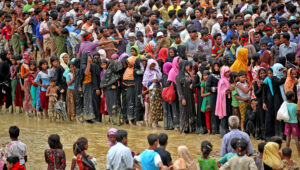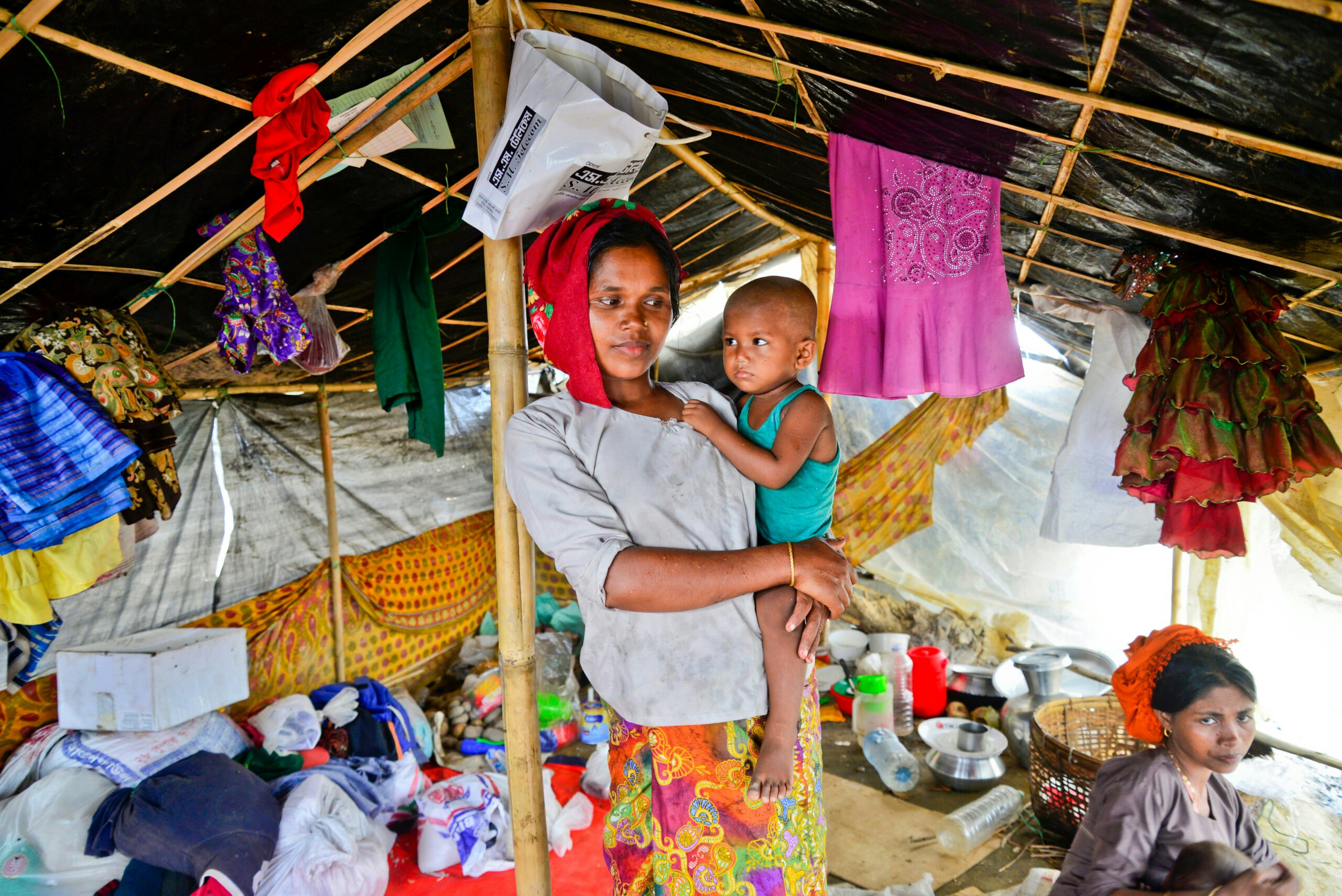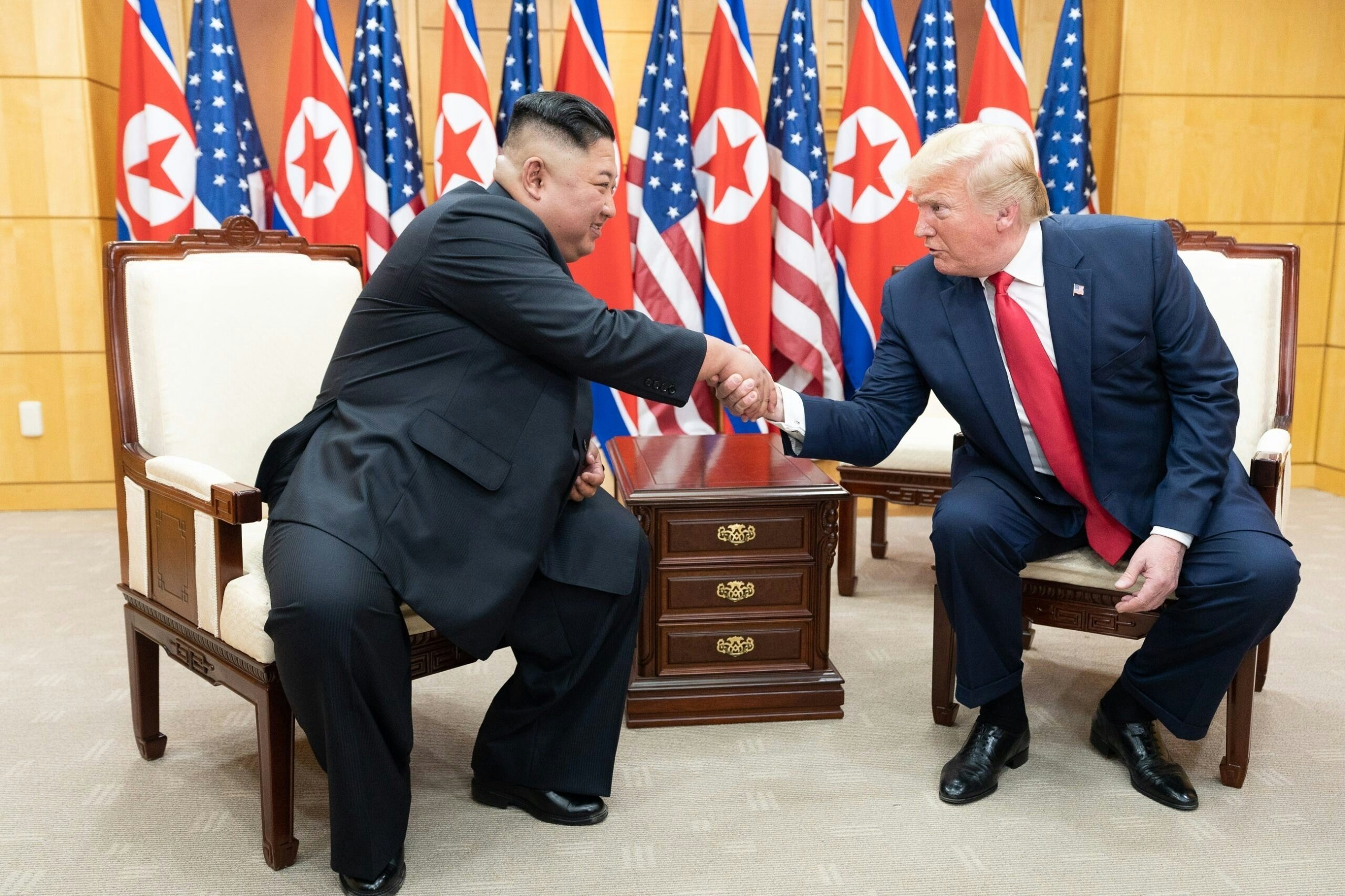At Cox’s Bazar refugee camp in Bangladesh – the landing place for about a million Rohingya refugees who fled a genocide by the Burmese military in 2017 – violent attacks against women and girls are so prevalent that they must be accompanied to the restrooms at night or face almost certain abduction.
One in four women and girls have been affected by gender-based violence while in the camp, according to data from the International Rescue Committee, and most were already survivors of, or witnesses to it, during the campaign in Burma. But the United Nations and Bangladeshi officials have said that the camp will receive less than half of the funding required to support it this year due to a reallocation of funds to Ukraine and other global crises.
“The world has stopped listening; I have been forgotten, and I still don’t have justice,” rape survivor Jamalida Begum told National Public Radio of the cycle of trauma and abuse.
The plight of the Rohingya serves as a chilling reminder of the need to continue the fight for gender equity – and how quickly the rights and dignity of women are abandoned when communities face catastrophe. Lessons learned from this ongoing struggle can aid women forced to fend for themselves in crisis regions around the world, including Afghanistan, Ukraine, and Central America.

Learn more
Cox’s Bazar has become a makeshift city over the past seven years, but Bangladeshi policies inhibit true integration and resettlement for these refugees. Officials have banned schools from teaching Rohingya children the local Bangladeshi language. Formal employment is outlawed, leaving evacuees completely reliant on foreign aid and food rations – both of which are shrinking rapidly.
Forced to fend for themselves without legitimate avenues for support, the camp has fallen into squalor and patterns of extreme violence. Rohingya militant groups that once targeted the Burmese military have turned against each other, brutally kidnapping, torturing, and killing community members. In early March, a massive fire in the camp left an estimated 15,000 homeless – not the first of what officials call a “planned and purposeful act of sabotage.”
Amid this dangerous setting, women face even greater risks and vulnerabilities. The daily struggle for women to find safe spaces, access to education and health care, and inclusion in political and economic arenas is compounded in crisis situations. Women and girls’ extremely limited freedom of movement means they are shackled by the control their communities have over their lives, especially regarding marriage and education.
With no opportunities for financial freedom and cultural norms curtailing women and girls’ activities outside the home, they are forced to choose between escape from the camp or child marriages and polygamy, leading to an increase in both. Perhaps the most widespread and heinous threat wielded against women in times of crisis is sexual violence. In the case of the Cox’s Bazar camp, there is no formal justice system, and the community operates under an understanding that there will be no consequences for abusers.
Globally, sexual violence goes up whenever there’s a crisis, from oil spills to tsunamis to geopolitical conflict. In some cases, the reports quadruple. This is especially troubling, as sexual assault is already known to be the most underreported crime, and victims during or in the aftermath of a disaster have even fewer opportunities to file or seek medical care.
In instances of immediate danger, invisible burdens can cost women their lives. While traveling lightly and living in unclean areas with few resources, they are often left responsible for elderly family members and children. These circumstances deny them the option of evacuation when in danger, resulting in women and children being 14 times more likely to die in disasters than men, according to the United Nations Development Program.
Simply reacting to crisis areas like Cox’s Bazar refugee camp is not enough. To limit women’s exposure to disaster risk and strengthen communities as a whole, safeguards for women and girls must be included in preparedness planning.
George W. Bush Institute policy recommendations call on the U.S. Congress, foreign legislatures, and U.N. institutions to push for greater representation of women’s rights defenders in decision-making forums and increase investments in capacity-building opportunities. Efforts to do so in disaster relief have already resulted in gender-responsive policing, women safe spaces, and essential services packages for women and girls.
This is just the beginning. Women and girls must be meaningfully included in preparation and response to maintain gender equity in disaster. Women deserve dignity, even when the world is falling apart.































